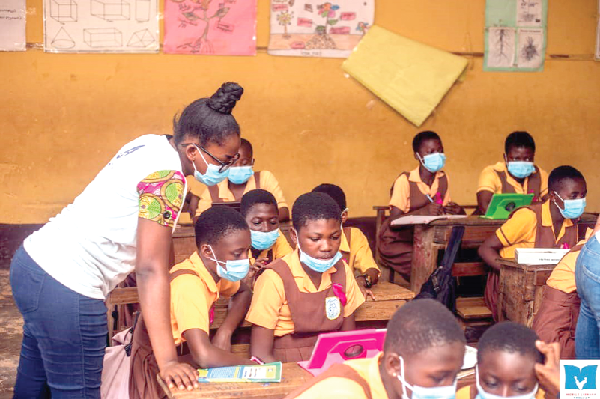
Facilitation in classrooms
It is every caregiver’s dream that his/her child will attend a school that provides children with all the support needed for academic success.
For many in Ghana, this may mean finding a private school that has good structures and excellent teachers.
For others, this may mean finding a school that has a great headteacher, etc.
When your child has a communication, learning or intellectual difficulty, this may be different.
Finding the appropriate school for children with any of these difficulties can be hard, if not almost impossible, in some areas of the country.
Teachers in mainstream schools in Ghana are often not equipped to support children with special needs.
In Ghana, it has become necessary to use people trained specifically to give support to children in classrooms as the mainstream schools do not have the capacity to support these children.
Speech and Language Therapists (SLTs) often set goals for the children and identify how these goals may be achieved.
Caregivers
For some children, this may require the use of ‘facilitators’ in classrooms.
These facilitators are often employed by caregivers, and they work closely with SLTs to meet the goals set.
While some schools and families have been receptive to this model of support, other schools have been reluctant to give it a go.
Caregivers are, thus, left with no choice than to look for other schools for their children.
Sometimes this means caregivers will find a new school for all their children because of the one child with difficulty.
For others, it may mean having their children in different schools and this may imply spending more when it comes to drop off and pick up at school. Families often go through some changes in their bid to find appropriate support for their children.
These changes may be related to their finances, physical location, relationships, expectations and spirituality.
Strategies for classroom facilitation
There are several things facilitators do in a classroom to support the child.
The exact support is often tailored to the specific needs of the child. Some of the general things that might be helpful include the following:
• They must discuss the goals for the child.
• The facilitator must explain the strategies being used to achieve these goals in the classroom setting.
• They must ensure to not interfere with classroom activities for other children.
• They must know the exact goals they are working on for each term, semester or session.
• The facilitator must discuss the progress the child is making with the class teacher.
• They must discuss with the class teacher how they can help the child in the classroom.
• The facilitator must make available all the resources the child needs in the classroom to help them understand and participate in class activities.
• They must be mindful of their actions in the school setting and seek for clarification whenever they are unsure about something.
• The goals for the child must be reviewed with the SLT periodically.
• As a facilitator, try to maintain confidentiality as much as possible.
• If the facilitator wants to take a video of the child in classroom, they need to seek consent from the school, teacher and the other children who may be captured in the video.
When facilitation is well planned and reviewed periodically with the speech and language therapist, children are likely to make progress. It helps to identify what is working well and what is not.
Caregivers need to also be part of the therapeutic process as the child needs support from school and home to make significant progress.
The Writer is Speech and Language Therapist/Clinical Tutor,
University of Ghana.
E-mail:
